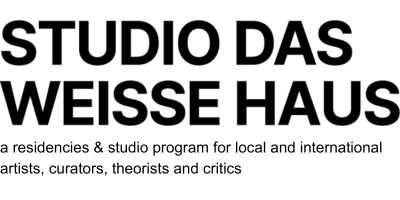



“Life is short – Art is long; learning how to listen. Good morning!”
In this episode we are introduced to the reciprocal act of speech and listening, that de-centers our understanding of the self and encourage a co-appearance and co-becoming through communication. Learning that human culture is part of large ecologies, not separate from them, we listen to the fairytale of the nightingale, with the most beautiful sounds of morning birds in the city waking us up with their songs. Finally we’re taken more than 2000 years back in time to the prototype of a self-help book by Seneca sending us the message: Life is short – art is long!
Good morning to the nightingale that chased Death back to his garden in his longing to hear bird songs, good morning to another corona-colored Sunday where people have yet again been reading to us from their isolations during the past week, and finally Good morning to a new beginning – many cities and countries around the world are slowly starting to open up, and with the knowledge from our 3 readers’ texts today in mind, we are ready for a slow awakening to a new day. Personally, I’m happy, to finally, after several months, to again be able to say: Good morning Copenhagen – I’m home!
Saskia Fischer reads
“To Become Two: Propositions for Feminist Collective Practice”, written by Alex Martinis Roe
Moving away from a solipsistic approach, we are reminded of the art of listening. This text explains beautifully how every act of speech demands intra-action, as in listening and responding. When the president says crazy things we must respond, that is what response-ability means. If we can, we must. And first of all, we can listen. Listen to each other, listen to the other, listen to the podcast and in that way understand the self better in relation to everything we’re communicating with, that is not just our zoom meetings, reading circles and studio visits on IGTV, this is also the trees in the forest, the plants in our home, the animals roaming the streets these days. Listen to them and experience a connectedness through whatever relation it might be. And then, I’d say, speak back. Tell stories, spread stories and contribute to human culture understanding itself as PART of large ecologies, not separate from them!
Apropos speaking back with one’s gaze or one’s presence, The Guardian wrote about an aquarium in Tokyo with sensitive eels that had started to forget humans, and therefore got scared whenever the staff would feed them: “Here is an urgent request,” the aquarium wrote. “Could you show your face to our garden eels from your home?”
Katja Stecher reads
“The Nightingale”, written by Hans Christian Andersen
At 6 am Katja reads to us from her balcony in Vienna surrounded by the most beautiful bird songs in the background. She reads the old fairytale of Hans Christian Andersen about the “Nightingale” – a story that touches upon the dichotomy between nature and culture, alive vs. artificial.
Hugo Hopping reads
“The Shortness of Time”, written by Seneca
Life is long if we know how to make the best of it – I guess is the message from this prototype of a “self-help” book written more than 2000 years ago, read to us by Hugo Hopping, who recommends us to ask ourselves what are the ecologies of enclosure and what is a life well lived?
